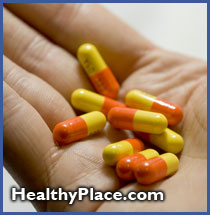Other Medications for Treatment of Alcoholism
Although not approved by the FDA specifically for treatment of alcoholism, there are other drugs available which seem to help alcoholics reduce cravings.
Suboxone
Suboxone, which is used to treat addiction to painkillers, is also finding its way into treatment for alcoholism.
The success of Suboxone lies not only in the power of the primary drug, but also in a second compound contained in this drug -- a medication known as naloxone. A powerful anti-addiction drug in its own right, naloxone, sold under the brand name Narcan, has also become a mainstay in the modern alcohol addiction treatment.
"When used in alcohol addiction, naloxone reduces cravings and diminishes the length of time alcohol is used while increasing the length of time an abstinent person might remain abstinent, " says Marc Galanter, MD, director of the division of alcohol and substance abuse at NYU Medical Center/Bellevue in New York.
Campral works much the same way as naloxone to stimulate the reward centers of the brain -- in this instance, by elevating levels of a brain chemical known as GABA. This, says Galanter, reduces the need for alcohol without activating the numbing effects patients normally get from drinking.
"Research has shown that if you give Campral and naloxone together you can get an even better and more enhanced effect with somewhat better outcomes," says Galanter. Though not specifically approved for the use of alcohol addiction, there are at least two other medications that are being used effectively -- the epilepsy drug Topamax and the muscle relaxant Baclofen. Topamax helps control impulsivity and a recent study shows it to be effective in reducing the percentage of heavy drinking days. Both are also undergoing testing as treatments for addiction to cocaine, heroin, and other opiates as well.

Zofran
Odansetron: (Zofran) is ordinarily used to prevent nausea and vomiting due to chemotherapy. It also has actions that affect serotonin, a neurotransmitter that helps regulate alcohol's effects. In one study, Zofran helped reduce drinking in people with early-onset alcoholism, although not in people who began drinking after age 25. These results suggest that this drug is helpful in patients with genetically related alcoholism, although not with alcoholism caused by other factors.
Antidepressants
Depression is common among alcohol-dependent people, and it can be a significant problem in people who quit drinking. In fact, one 2002 study found that quitting drinking was associated with a fourfold increase in the risk for major depression. Antidepressants may be helpful, particularly for patients who have a history of depression.
Studies indicate that SSRI antidepressants may reduce cravings and desire for alcohol, even in selected people who are not depressed. Studies report reductions in alcohol ranging from 10 - 70% in people with alcoholism who take SSRIs.
Sources:
- WebMD
- Shrink Rap blog
next: Can 'Hare Krishna' Chant Cure Addiction to Drugs?
~ addictions library articles
~ all addictions articles
APA Reference
Tracy, N.
(2008, December 13). Other Medications for Treatment of Alcoholism, HealthyPlace. Retrieved
on 2026, January 2 from https://www.healthyplace.com/addictions/articles/other-medications-for-treatment-of-alcoholism


